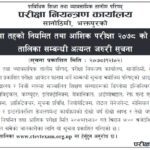Table of Contents
A. Entrepreneurship concept:
Entrepreneurship is “a process of putting new ideas into practice”. Entrepreneurship skills are those basic skills necessary to enable a person to start, develop, finance, and market their own business. An entrepreneur is a person who runs such businesses.
There are a number of qualities and skills accommodation owners need to have, including personal attributes, business skills, and management capability. These skills are Sales and marketing, best use of limited capital, self-motivation skills, time management skills, and administration skill.
Entrepreneurship and investment:
Entrepreneurship and investment have a direct relationship. To serve international tourists, little investment may be required. Especially, in Humla and Dolpa, tourists come for a pure, authentic experience of the “real Dolpa and Humla culture”. Most probably investments are needed in the following areas:
Investments for guesthouses and homestays
- Investments in the rooms: beds, clean sheets, blankets, pillows, pillow covers
- Investment in the kitchen or dining hall: get nicely decorated tables in Tibetan style (at Buddhist part of treks, in Hindu villages decorated in their own style)
- Investment in a kerosene cooking stove (to minimize the use of scarce firewood)
- Investment in clean cooking equipment
- Investments in (clean) toilets (many guesthouses don’t have a toilet now)
Investments for campsites
If tourism numbers grow, there will be a demand for more campsites. Investing in a campsite is, therefore, a recommendable investment.
Besides, existing campsites can be improved. A good campsite has:
- A flat, preferably grassy area
- A clean toilet
- Water nearby
- A kitchen house
A kitchen house could be equipped with a kerosene stove and cooking equipment. In this case, the extra money can be charged for renting out this space. Kerosene could be sold here as well.

B. Marketing concept:
Marketing is the process of buying and selling a product or service. Marketing involves researching, promoting, selling, and distributing products or services. Marketing is a key to economic success. It is very important for tourism entrepreneurs to understand the tourism industry as a marketplace. Marketing involves the followings:
- A product that is of interest for a potential visitor
- The customer who might buy it
- Potential customers who are informed about the product
- Bringing the product to the market, so that the customer is able to buy it
Tourism products:
A tourism product is a combination of services, commodities, and other material or immaterial items that enable the clients to have a better experience. The experience consists of what the tourist does and learns during their stay and the individual impressions they get from visiting the destination. The tourism products are:
The natural resources and heritages:
The natural and cultural attractions of a region are the main tourism product. These also include geographical features and the climate.
Infrastructures:
These are basic requirements for tourism and include transport facilities, water supply, power supply, sewage and waste disposal, etc.
Superstructures:
These products are developed at a later stage at the destination either to increase tourism or because of an increase in tourism, for example, hotels, restaurants, places of entertainment, information, and communication services.
Marketing Mix or 4’Ps of marketing:
The four P’s are different instruments of marketing. These are product (or services), price, place (distribution policy), and promotion (communication policy).
Product: It may consist of combining various product elements such as tourism package, development of local products (value chain product).
it also includes the improvement of services (e.g. for hotels), or, in the case of tour operators, the selection of agencies and staff, the quality of consultation, and the creation of additional services (guide books, information package, etc.).
Price: The price must be market-oriented, which means the price of a product is not determined by considering the costs only, but by evaluating the current market situation and competition.
For example creating several offers such as high pricing (quality, exclusiveness), low pricing (discount offers). Pricing can be set by considering several factors such as:
- Time: peak season – off-peak season, weekend – working day, stand-by offers
- Costumer: families, kids, students, seniors
- Volume: rebates for groups, prices for contingents
- Distribution chain: discounts for tour operators
- Point of time of payment: discount for early booking/payment
- Spatial criteria: different prices for different departure points/geographically separated markets
- Commercialization of “free goods”: climate, air, water, location, view, orientation (“mountain view”)
Place: Place is where the product is purchased either directly by the customer or via
tour operators.
Promotion: Promotion of services includes giving general information about the product and the provider through ongoing activities in advertising, sales and public relations, presentations at fairs, and direct merchandising like little presents and customer’s cards, etc.
Who can produce a tourism product?
In principle, three basic producers can be identified:
- Individual service providers (e.g. hotels, restaurants, tour guiding)
- Travel agencies and tour-operators
- Destination management organizations (e.g. tourism association, tourist
information centers, the tourism department of the local administration
stakeholders-of-tourism-and-their-interrelation









